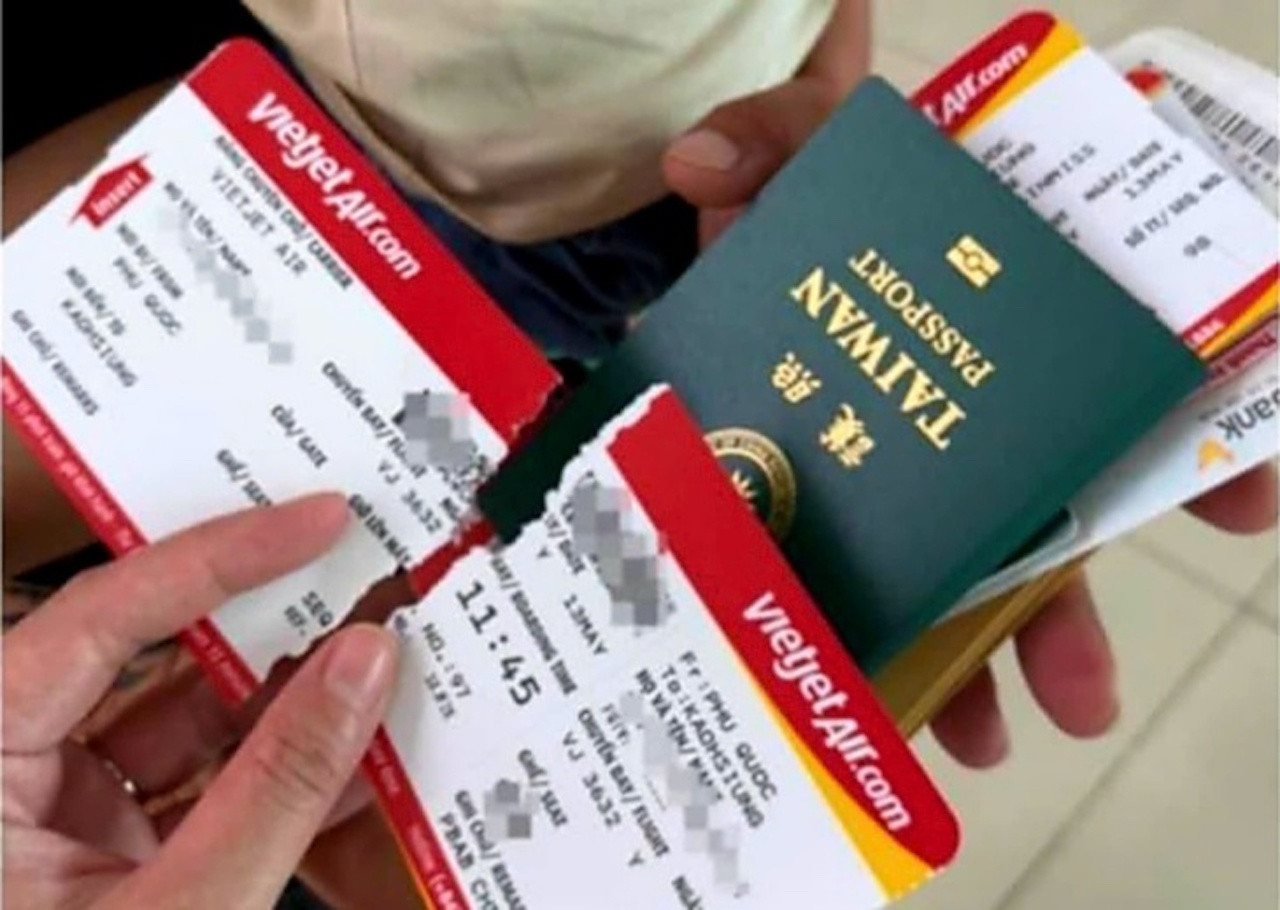The Immigration Department under Vietnam’s Ministry of Public Security has suspended an officer at Phu Quoc International Airport for inappropriate conduct toward a foreign tourist, sparking widespread public reaction.

On the evening of May 19, the Immigration Department released a statement regarding the incident, which involved an officer tearing up a boarding pass belonging to a family member of a Taiwanese (China) tourist during exit procedures at Phu Quoc International Airport.
Upon receiving the report, the department issued an immediate decision to temporarily suspend all officers involved in handling exit procedures on May 13 to investigate and handle the matter in accordance with police regulations.
The incident - where an immigration officer tore up a boarding pass - drew widespread backlash online. According to aviation expert Pham Ngoc Sau, the root of many complaints in Vietnam’s airports is not complex procedures but the attitude of some staff members.
Sau explained that immigration officers are responsible for verifying legal travel documents such as passports, visas, and residence permits, and do not check baggage or personal belongings. Those duties fall under the authority of airport security, customs, and quarantine units.
“Each country has its own regulations on immigration. Comparing which is ‘stricter’ or ‘easier’ is not meaningful - it’s a matter of national sovereignty,” Sau noted. “However, passenger experience is shaped by infrastructure, technology, and operational organization. Advanced airports like those in Singapore, South Korea, or Japan use e-gates and biometric systems that streamline the process.”
In Vietnam, passenger dissatisfaction often stems from unprofessional behavior rather than procedures. “Even a single inappropriate action can damage the image of the entire sector and the country,” he emphasized.
Regarding the Phu Quoc incident, Sau confirmed the officer had apologized to the tourist. “That should be acknowledged, and it reinforces the need to instill a service mindset among staff at international gateways like airports,” he added.
Assoc. Prof. Dr. Bui Hoai Son, a member of the National Assembly and Standing Member of the Committee on Culture and Education, condemned the officer’s behavior, calling it “unprofessional and disrespectful.”
“An airport is the face of a nation. Each officer or security staff member represents not only technical roles but also national image, cultural behavior, and hospitality,” he said. “Ripping up a boarding pass in front of a traveler and their children leaves emotional damage and stains our country’s reputation.”
He stressed that no excuse - whether procedural pressure or workload - justifies disrespecting another person. “Airport personnel must remain calm, polite, and professional, especially in moments of disagreement.”
“Vietnam wants to be seen as a welcoming, safe, and attractive destination. Every smile, gesture, and word spoken at the airport should reflect that goal,” he added. “This is not just about skill - it’s about public service ethics and a culture of respectful administration.”
Policy openness vs. implementation gaps
Vietnam is recognized for having relatively accessible immigration policies. Compared to countries like the U.S., U.K., Japan, or Australia - where strict visa requirements include in-person interviews and financial documentation - Vietnam has eased the process considerably.
With e-visa availability for citizens of over 150 countries and visa exemption for 25 nations, including European and ASEAN countries, Vietnam shows its openness to welcoming international visitors.
Compared to regional peers such as Thailand, Singapore, or Malaysia, Vietnam still trails in technological infrastructure but is steadily catching up. Visa processing is relatively fast, with fewer paperwork requirements and reasonable fees due to digitalization.
However, Bui Hoai Son pointed out that gaps remain in execution. Examples include the lack of multilingual guidance and inconsistent service quality at airports. “Even with open policies, minor missteps by airport staff can mar Vietnam’s image,” he said.
“Strict adherence to security protocols is necessary and correct,” he continued, “as airport staff are the first line of defense in ensuring national and passenger safety.”
Flexibility: The key to building trust
According to Bui Hoai Son, modern and civil administrative systems must avoid rigid or overly lenient practices. Flexibility is crucial - adapting rules appropriately to enhance the experience while maintaining integrity.
He emphasized that flexibility does not mean leniency or disregarding rules, but the intelligent, context-sensitive application of policies in a way that prioritizes service and international hospitality.
“This incident is a lesson. Airports across the country should train security and immigration personnel not only in technical skills but also in communication, service mindset, and cultural sensitivity,” he said. “Every friendly gesture can make a meaningful impression on international travelers.”
The viral incident occurred on May 13, when a family of Taiwanese tourists encountered an officer at Phu Quoc Airport while preparing to board their flight. The officer insisted they process each family member, including two small children, separately. After waiting in a long queue, the frustrated family expressed dissatisfaction. In response, the officer tore up the boarding pass in front of them - an act widely condemned as inappropriate and unprofessional.
Dinh Hieu